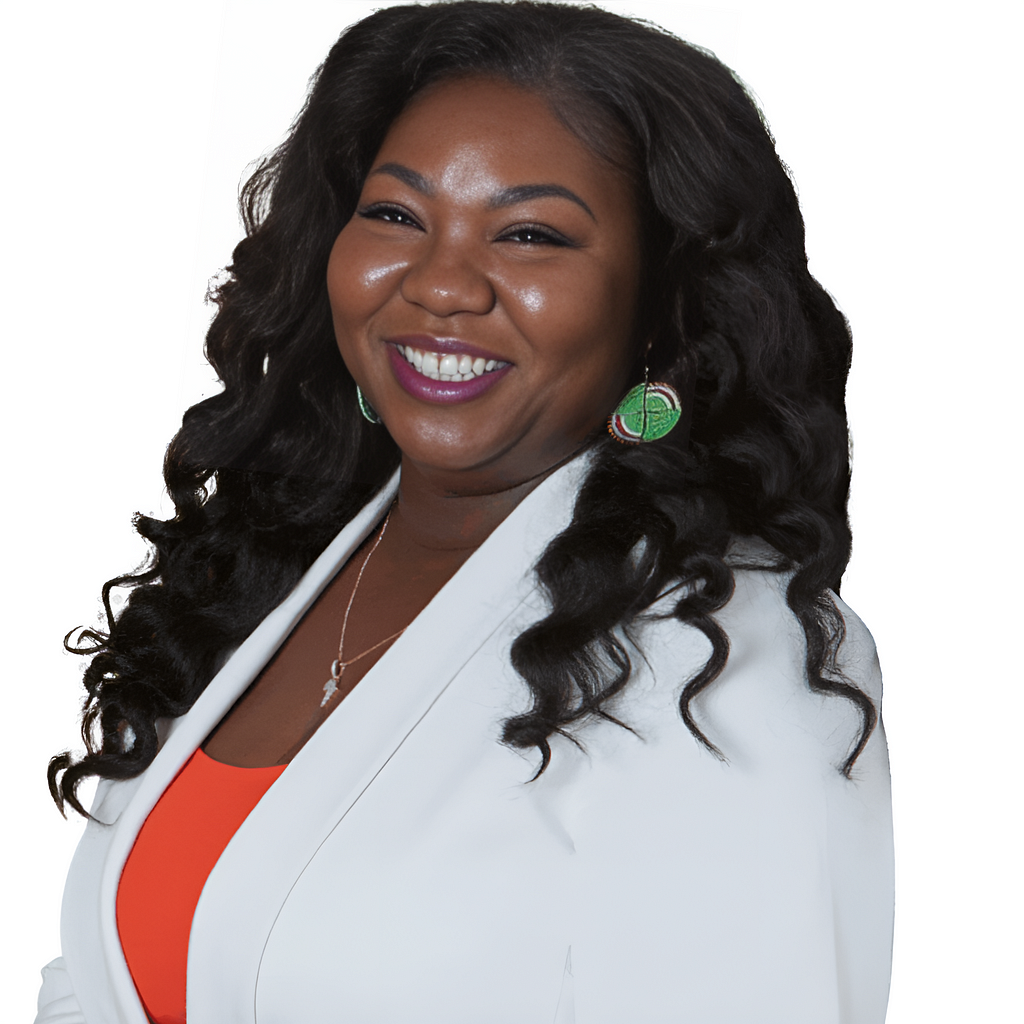
Stay informed and adapt to industry-specific strategies. What works for one type of business may not apply to yours, especially in service-based industries with unique financial considerations. Stay proactive in seeking out relevant information and strategies to stay ahead of the curve.
As part of my series about “individuals and organizations making an important social impact”, I had the pleasure of interviewing Lanae Norwood.
Lanae is the founder and CEO of L. Norwood & Associates, a boutique movement-building firm rooted in the communities it serves, culture, and its liberatory values. Lanae is polymathic and a respected community organizer, strategist, trainer, facilitator, speaker, creator, and ideator with over 18 years of combined professional experience in movement building, communications, marketing, and organizational leadership development. She has deep connections to Black, Latine/o/x, Hispanic, Chicano, Indigenous, AAPI, and other people of color communities throughout the US. Lanae’s lived experience as a community organizer and a system-impacted youth informs her movement-building work and drives her passion for liberating and empowering oppressed communities.
Thank you so much for joining us in this interview series! Can you tell us a story about what brought you to this specific career path?
My journey to this career path was deeply shaped by my own experiences and the experiences of those around me. My daughter recently had her 16th birthday and as I celebrated her milestone, I couldn’t help but reflect on my 16th birthday, which was starkly different. Instead of being surrounded by loved ones, I found myself confined to a jail cell. At just 14 years old, I found myself in trouble with the law after shoplifting and was sentenced to jail time two years later. During this challenging time, I made a promise to myself to break free from this cycle and to make a positive impact on the world. I vowed to create a future where young girls, especially those from marginalized communities like mine, wouldn’t have to face the same hardships I did.
After years of navigating the corporate world and pvotal events like the tragic death of Trayvon Martin and the emergence of the Black Lives Matter movement shook me to my core. It ignited a fire within me to start grassroots organizing, community engagement, and ultimately, founding my nonprofit organization and eventually my consulting company, L. Norwood & Associates.
Can you share the most interesting story that happened to you since you began leading your company or organization?
Since leading L. Norwood & Associates, we have truly created an environment where young Black talent feel genuinely inspired to step into our workspace every single day. They bring not just their skills, but their passion and commitment, going above and beyond to contribute to our campaigns and serve our clients. They understand the direct impact our work has on millions of lives, and they thrive in a workspace where acceptance and celebration of diversity are the norm.
It has been said that our mistakes can be our greatest teachers. Can you share a story about the funniest mistake you made when you were first starting? Can you tell us what lesson you learned from that?
I’ve learned some tough lessons about building a board intentionally, pacing the work, and managing finances, especially in a nonprofit with complex compliance. For instance, I had to learn about S corp designation for tax benefits the hard way. Education is crucial, but there’s a gap between working for someone and being an entrepreneur. Finding the right accountant was a struggle, especially for a social enterprise like ours. Our service-based model required a unique approach to accounting. Mentorship, especially for black entrepreneurs in this industry, is lacking. Hiring a financial planner, provided valuable insights that transformed our financial management and access to capital. These lessons, while costly, have been instrumental in our growth and could have been avoided with better access to industry-specific mentorship and resources.
Can you describe how you or your organization is making a significant social impact?
We are polymaths with formal training and applied learning. Our hands-on experience at every level of issue and political campaigns informs our strategies. We have expertise in a wide range of subjects such as capacity-building, base-building, narrative change, culturally responsive programming, fully integrating communications with organizing, policy, and fundraising. And humblebrag — we’re good at it. Our targeted strategies win and impact change.
Can you tell us a story about a particular individual who was impacted or helped by your cause?
I’ve been fortunate to have an incredible mentor, Anthony Thigpen, founder of California Calls, known for groundbreaking grassroots civic engagement campaigns. His advice on prioritizing work that helps as many people as fast as possible has been invaluable. I approach my work considering mass impact and systemic change, not just individual outcomes. For instance, in the 2020 census, we collaborated on My Black Counts, a campaign addressing the distrust of government in black communities. This project aimed to connect with hard-to-count black Californians, acknowledging and addressing their valid concerns about government intrusion.
Are there three things the community/society/politicians can do to help you address the root of the problem you are trying to solve?
Acknowledge that the issues exist in Black and Brown communities, give them access to the same resources and funding that are found in predominantly White communities.
When we eliminate disparities and break down barriers, paving the way for people to live their fullest lives, we naturally foster safer, more secure communities.
How do you define “Leadership”? Can you explain what you mean or give an example?
Leadership is all about how you can impact and influence others. It’s not enough for me to thrive and be successful, if my community and those around me are struggling. It’s not just about what I’m capable of doing; it’s about the potential for widespread impact in a short timeframe. Consequently, every decision I make as a leader is driven by the desire to effect systemic change and reach as many individuals as possible.
Therefore, every decision I make as a leader is driven by a commitment to effecting broad, systemic change and reaching as many individuals as possible.
What are your “5 things I wish someone told me when I first started” and why?
1 . Get savvy with your business structure early on. Understanding things like S corp designation can significantly reduce your tax liability, saving you from costly mistakes down the road.
2. Don’t underestimate the importance of financial management. From taxes to audits, having a solid grasp of your finances is crucial. And finding the right accountant who understands the nuances of your industry can make all the difference.
3. Seek mentorship and guidance, especially in underserved communities. While mentorship may be harder to come by, piecing together insights from various sources can still provide valuable lessons.
4. Invest in professional financial planning when feasible. While it may seem like a hefty expense upfront, the insights gained can be invaluable for long-term financial success.
5. Stay informed and adapt to industry-specific strategies. What works for one type of business may not apply to yours, especially in service-based industries with unique financial considerations. Stay proactive in seeking out relevant information and strategies to stay ahead of the curve.
You are a person of enormous influence. If you could inspire a movement that would bring the most amount of good to the most amount of people, what would that be? You never know what your idea can trigger. 🙂
Reparations. America has engaged in the biggest crime against humanity ever documented. Yeah. It needs to acknowledge and apologize for its sins against Black Americans. and it needs to take responsibility for them and it needs to pay us the debt that it owes us for 250 years of free and forced labor.My focus is on advocating for reparations and ending the modern-day enslavement seen in mass incarceration. I’m actively involved in campaigns that are pioneering state-level reparations efforts in California, alongside esteemed organizations and former task force members. Our aim is to develop a communication strategy that advances reparations at the statewide level, setting a precedent for the nation.
On February 21st, in Sacramento, the California Legislative Black Caucus introduced 14 reparations bills, marking a historic moment with recommendations based on the United Nations Five Principles of Reparations and the California Reparations Task Force Report. This comprehensive report, spanning close to 1,100 pages, offers over 115 policy recommendations to advance reparations in California. Additionally, efforts are underway to establish a California Communications Collaborative focused on liberation, aiming to counter narratives that promote tough-on-crime policies. This collaborative seeks to highlight the true stories of investing in people to address root causes of crime, safety, and economic disparities.
Can you please give us your favorite “Life Lesson Quote”? Can you share how that was relevant to you in your life?
When we look in the mirror, we must ask ourselves, what have we done to make the world a better place? What have we done to give back and show our appreciation for the lives that we live? And with that, how what is our contribution to our communities, to our families, and to the society. What legacy are we leaving behind?
Is there a person in the world, or in the US with whom you would like to have a private breakfast or lunch with, and why? He or she might just see this, especially if we tag them. 🙂
I would definitely want to connect with Michelle Obama because I feel like she would be able to give me the type of advice that only a woman that has walked in her shoes can give. And then in addition to that, she is such a connector. She would be able to open up doors and opportunities for me to do this work at the national level or maybe even at a global level to have even more impact. Going back to the principle of how do you help as many people as possible as fast as you can? I think Michelle Obama would be a great person to connect with to talk about that.
How can our readers further follow your work online?
Visit https://lanaenorwood.com/
This was very meaningful, thank you so much. We wish you only continued success in your great work!
Social Impact Heroes: Why & How Lanae Norwood Is Helping To Change Our World was originally published in Authority Magazine on Medium, where people are continuing the conversation by highlighting and responding to this story.
